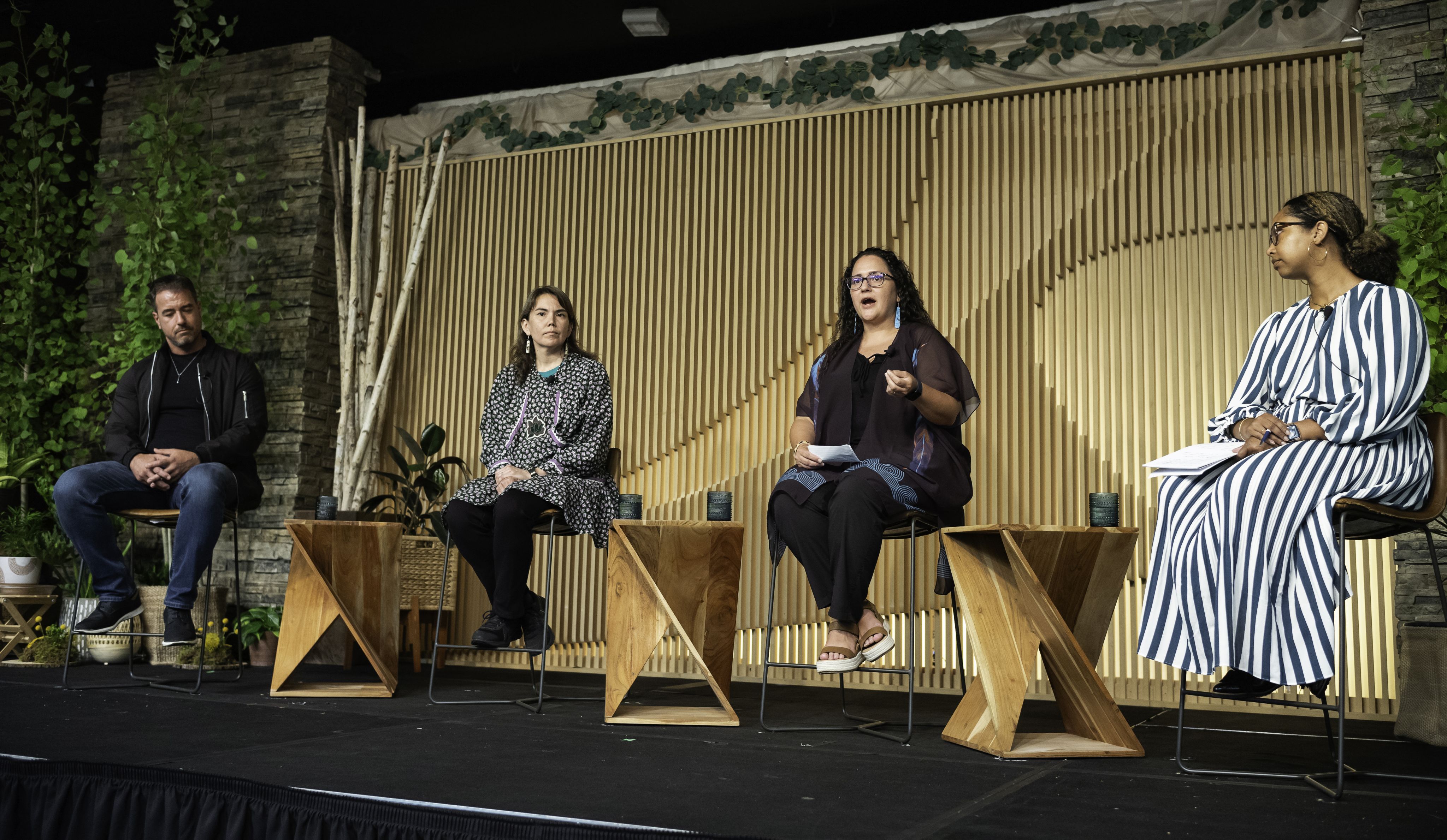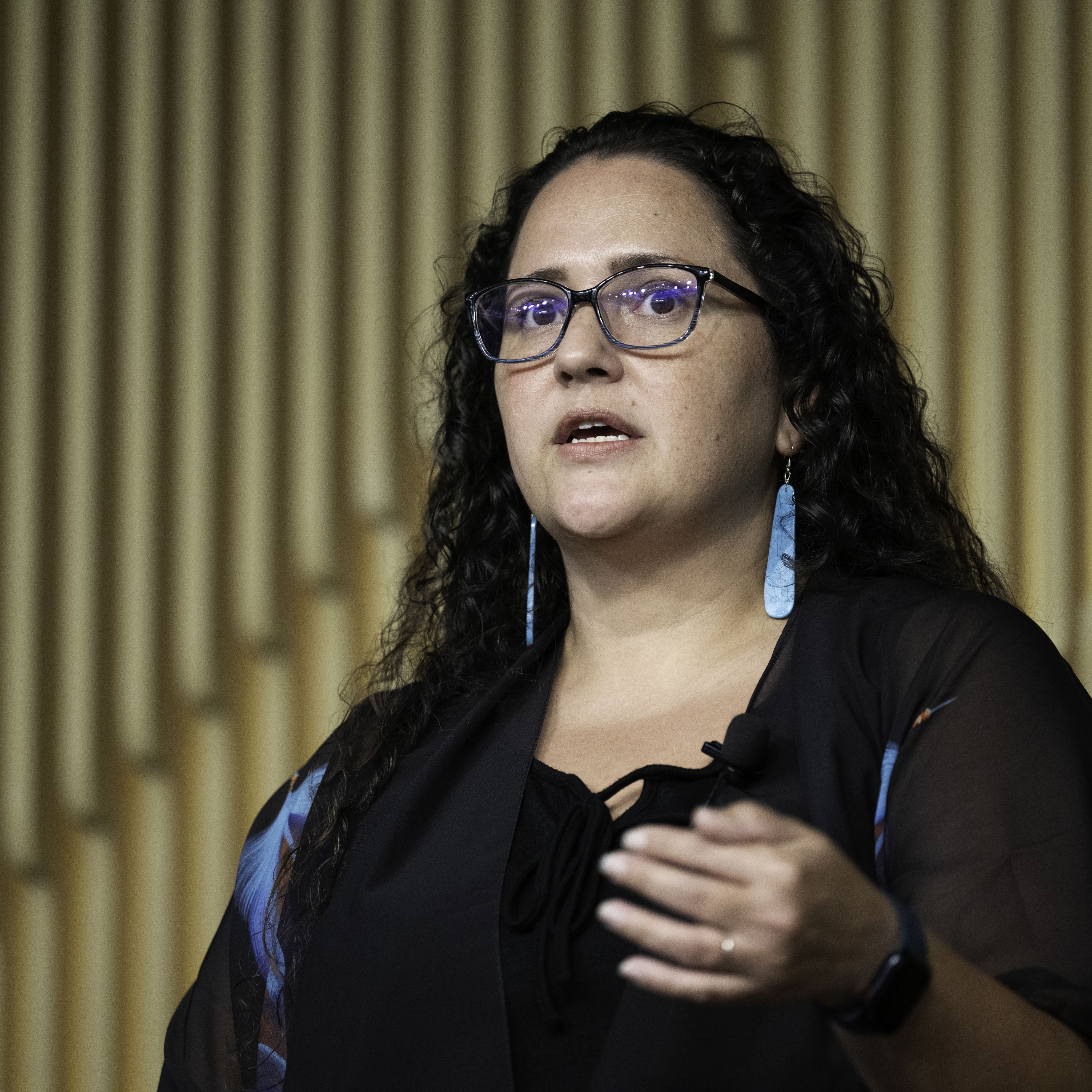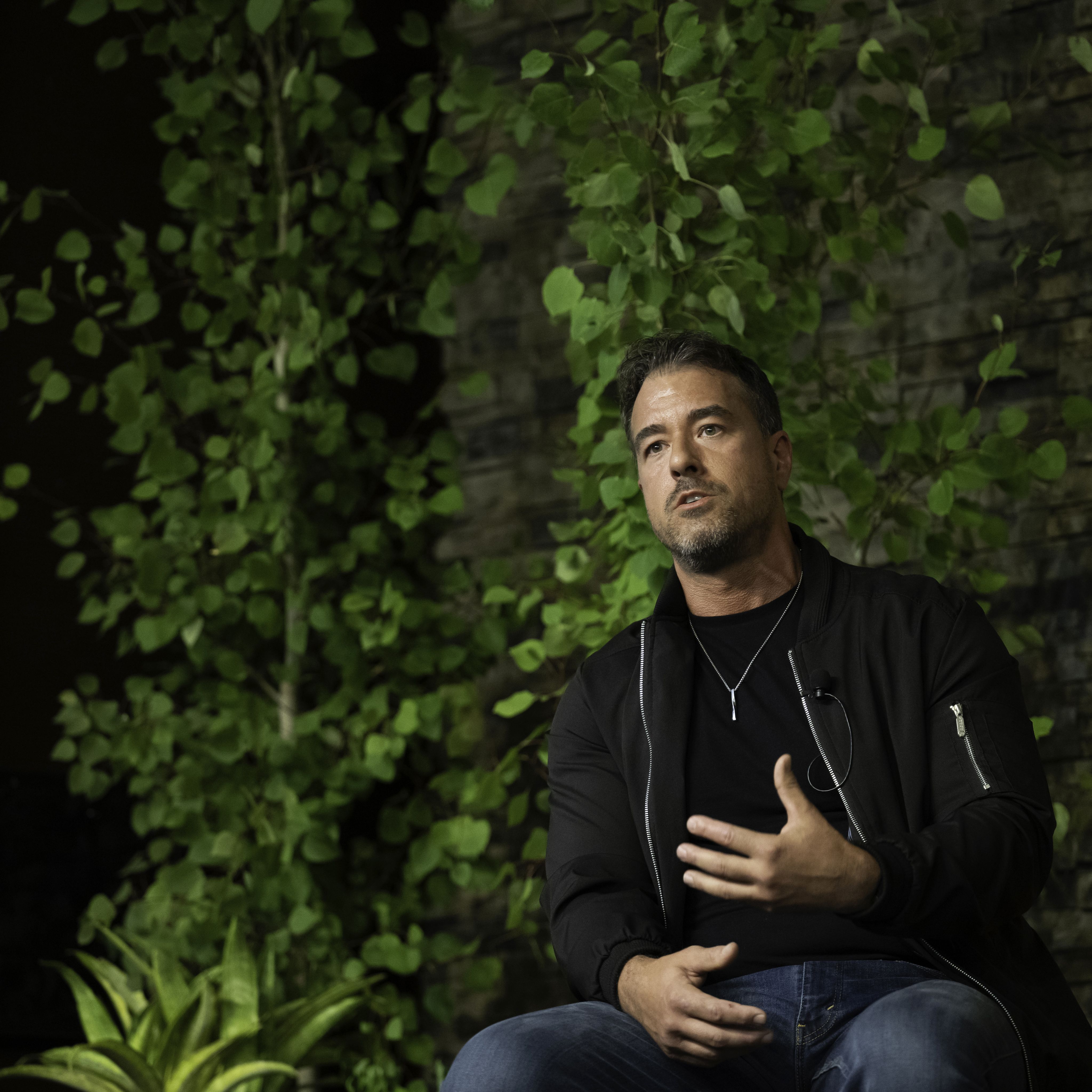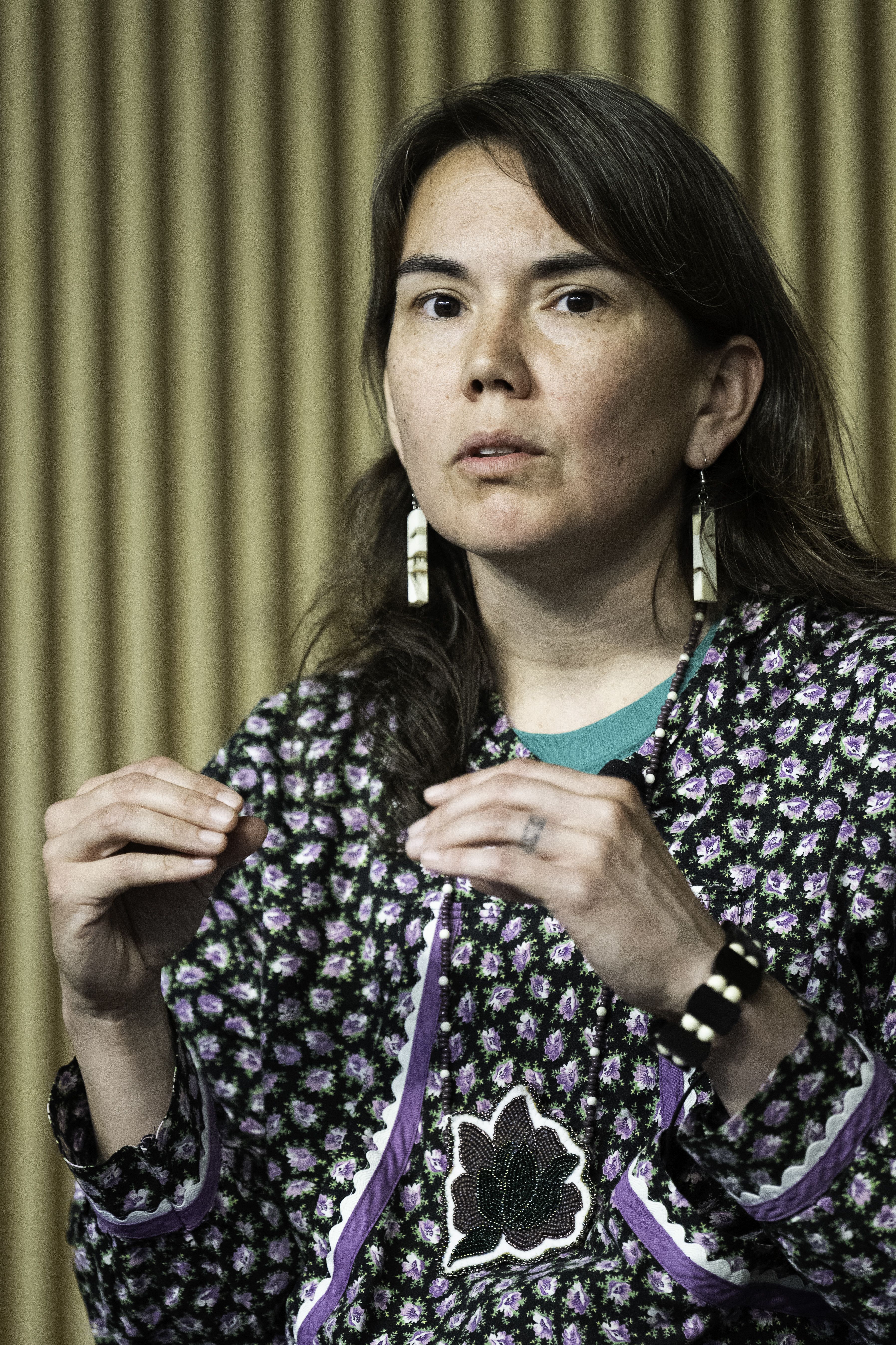Words of Wisdom
How Ascend Fellows are co-creating and accelerating Indigenous solutions

On stage this summer at Aspen VisionXChange, Dr. Deana Around Him, a 2022 Ascend Fellow, is keenly aware of the strength that comes from generations of Indigenous wisdom. But she also feels the disconnect that American Indians have experienced from their own traditions and practices since Europeans came to this land more than 500 years ago. Healing is needed, as are resources. On that stage, though, she is filled with hope.
“I think it's critical that we have three native PhDs up here,” Deana says. “That’s amazing.”
Those other two PhDs on stage with Deana were Dr. Joe Hobot, president and CEO of American Indian OIC and a 2018 Ascend Fellow, and Dr. Jessica Saniġaq Ullrich, Assistant Professor at Washington State University and a 2022 Ascend Fellow. In their conversation, the three Indigenous scholars highlighted solutions that are possible when sharing the depth and breadth of Indigenous history, knowledge, and culture more fully.
A citizen of the Cherokee Nation as well as a mother and a relative, Deana researches American Indian and Alaska Native (AIAN) children and families. Rediscovering wisdom that was systematically dismantled and disrupted over centuries motivates her to promote tribal sovereignty and cultural strengths in her research.
On stage at VisionXChange, Deana emphasized the power of allyship and investment to leverage the strength and wisdom of cultures that have been marginalized for too long. She asked allies to stand with AIAN families and to make sure resources flow into their communities to sustain and revitalize cultural practices. This support will benefit AIAN people today and in the future, including Deana’s 8-year-old son. “I want him to feel comfortable and safe everywhere he goes and to be proud, see his language, see his community, see positive representations of him everywhere.”
“I want [my son] to feel comfortable and safe everywhere he goes and to be proud, see his language, see his community, see positive representations of him everywhere.”
As an adjunct faculty member at the Johns Hopkins School of Nursing and strategic dissemination lead for the Tribal Early Childhood Research Center, Deana often deploys community-engaged and community-based participatory research practices in projects such as evaluation of a culturally based parent training curriculum and an examination of home-visiting efforts during the pandemic.
“In the last 10 years,” she noted, “I've seen some amazing training programs pop up and start to train the next generation of Indigenous scholars applying their research methodologies to spaces like education, child welfare, and public health.”

“Our language is absolutely critical to the expressions of our customs and our practices,” said Dr. Joe Hobot, a descendant of the Hunkpapa Band of the Lakota Nation from the Standing Rock Indian Reservation. Native languages, he continued, contain concepts and sentiments that fuel expression and facilitate transmission of wisdom.
At VisionXChange, Joe advocated for alternative schools such as American Indian OIC’s Takoda Prep, which are culturally contextualized. In these spaces, Indigenous customs, practices, and perspectives are honored and prioritized. By upholding a way of life that is in harmony with Mother Earth rather than one that exercises dominion over her, these schools uplift Indigenous cultural expressions, presenting a vibrant alternative to public education systems.
Instead of cultural systems that have “led us into a ditch,” he urged, “It's time to hand the keys over to somebody else.”

Dr. Jessica Saniġuq Ullrich is an Inupiaq scholar, a tribal citizen of Nome Eskimo Community, descendant of the Native Village of Wales in the Bering Strait Region of Alaska, and a mother of two daughters. In May 2023, she wrote an editorial for the Anchorage Daily News that underscored the importance of intergenerational language transmission. “Everyone has a role to play on this learning journey,” she wrote, “We can all commit to language learning, and funders can sponsor language preservation efforts. Our living language allows our soul to learn, experience recognition and can help us co-create a flourishing future.”
At VisionXChange, Jessica said she got into this work because of the trauma and disconnect she’d seen. “I talked to tribal leaders and elders,” she recalled, “and they told me, ‘We know a lot about trauma; we feel it; we're experiencing it.’”
She cited the success of the People Awakening Project, a long-term collaboration between AIAN communities and researchers at the University of Alaska Fairbanks. For Jessica, the terms connectedness and relationality represent the key to reinvigorating an individual, a family, or a community. “It’s about coming back in the right relationship again,” she said, “and having that relationality guide all of our work and our practices, systems, and everything that we do.”

